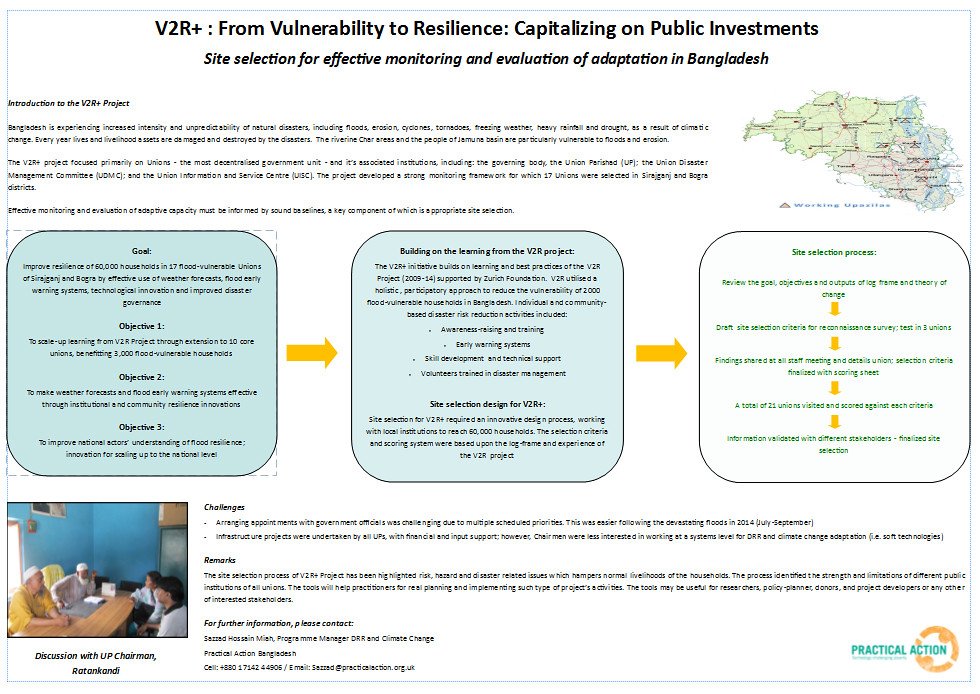In this fast-paced digital era, where the world has shifted to online platforms for almost every aspect of life, the importance of safeguarding online success has become paramount. As eCommerce continues to thrive and revolutionize traditional business practices, there is a pressing need to fortify the very foundation of this virtual marketplace – the eCommerce websites and the valuable data they hold. In a world where cyber threats are ever-evolving and becoming increasingly sophisticated, it is crucial to navigate the digital landscape with caution and implement strategies that ensure the security and longevity of online businesses. Join us as we embark on a journey to explore the fundamental steps needed to fortify eCommerce websites against these virtual perils, securing not only online success but also the trust of customers who rely on these platforms. From implementing robust security measures to cultivating a culture of vigilance among users, this article delves into the creative ways to safeguard your eCommerce website and data, empowering you to thrive in the digital realm.
Table of Contents
- Fortifying eCommerce Website Security: Protecting Against Cyber Threats
- Implementing Robust Data Encryption: Safeguarding Sensitive Customer Information
- Ensuring Secure Payment Gateways: Preventing Financial Fraud
- Regular Vulnerability Testing and Updates: Continuously Strengthening Online Defenses
- Q&A
- In Conclusion

Fortifying eCommerce Website Security: Protecting Against Cyber Threats
In today’s digital age, eCommerce websites have become a lifeline for businesses, offering convenience and accessibility to customers worldwide. However, with this surge in online transactions, cyber threats have also grown exponentially, putting sensitive customer data and the reputation of eCommerce businesses at risk. It is crucial for businesses to fortify their eCommerce website security measures, ensuring a safe and secure environment for both themselves and their customers.
One of the first steps in securing an eCommerce website is to implement powerful encryption techniques. SSL (Secure Sockets Layer) certificates, indicated by the familiar padlock symbol in the browser’s address bar, encrypt all data transmitted between the customer’s device and the website’s server. This prevents cybercriminals from intercepting sensitive information such as credit card details or login credentials. Implementing SSL not only protects customer data but also enhances their trust in the website, increasing conversion rates and customer loyalty. Additionally, regularly updating and patching website software and plugins is crucial to safeguarding against known vulnerabilities. Outdated software can create security loopholes that can be easily exploited by hackers. By keeping the website’s software up to date, businesses can protect themselves against common hacking techniques such as SQL injection or cross-site scripting attacks.
Implementing Robust Data Encryption: Safeguarding Sensitive Customer Information
In the fast-paced world of eCommerce, ensuring the safety of customer data is paramount. With the increasing number of cyber threats, it has become imperative for businesses to implement robust data encryption methods to protect sensitive customer information. By fortifying your eCommerce website and data, you can establish trust with your customers, protect your reputation, and ultimately achieve online success.
Implementing data encryption involves converting sensitive information into unreadable format, rendering it useless to unauthorized individuals. There are several key steps you can take to beef up your online security:
1. Choose the right encryption algorithm: Use strong encryption algorithms like AES (Advanced Encryption Standard) to encrypt customer data. This industry-standard encryption algorithm has withstood rigorous testing and is trusted by organizations worldwide.
2. Secure transmission channels with SSL/TLS: When transferring data between your eCommerce website and customers, utilize Secure Socket Layer (SSL) or Transport Layer Security (TLS) protocols. This encrypts the data as it moves across the internet, safeguarding it from prying eyes.
3. Implement multi-factor authentication (MFA): MFA adds an extra layer of security by requiring users to provide multiple forms of identification, such as a password and a unique code sent to their mobile device. This significantly reduces the risk of unauthorized access to sensitive customer information.
4. Regularly update and patch software: Cybercriminals often exploit vulnerabilities in outdated software. Ensure that your eCommerce platform, content management system, and any other software used on your website are up to date with the latest security patches.
By implementing these robust data encryption measures, you are fortifying your eCommerce website and data, making it far more difficult for cybercriminals to compromise sensitive customer information. Remember, investing in online security today translates to trust, customer loyalty, and the continued success of your business in the long run.
Ensuring Secure Payment Gateways: Preventing Financial Fraud
One crucial aspect for e-commerce websites to consider is the security of their payment gateways. Ensuring secure payment gateways is essential to prevent financial fraud, protect personal information, and maintain customer trust. Here are some important measures and best practices to fortify your e-commerce website and data:
1. Implement SSL encryption: Secure Sockets Layer (SSL) encryption is a standard security technology for establishing an encrypted link between a web server and a browser. It ensures that all data transmitted between the two remains private and protected from potential hackers.
2. Use reputable payment gateways: Choose well-established and trusted payment gateways, such as PayPal or Stripe, that have robust security protocols in place. These gateways often use industry-leading security measures like tokenization, which replaces sensitive customer information with unique identification symbols to minimize the risk of data breaches.
3. Enable two-factor authentication: By implementing an additional layer of verification, like two-factor authentication (2FA), you add an extra security barrier. This method requires users to provide a second form of identification, such as a code sent to their mobile device, in addition to their login credentials.
4. Regularly update security patches: Keep your website’s software and plugins up to date by installing the latest security patches and updates provided by your platform or CMS (content management system). Updates often include important security fixes that can help protect against new vulnerabilities.
5. Conduct regular security audits: Regularly assess your website’s security by conducting thorough audits. These audits involve analyzing your website’s code, performing vulnerability scans, and utilizing penetration testing to identify and fix any potential security weaknesses before they can be exploited.
By implementing these measures and staying proactive about website security, you can safeguard your e-commerce website and protect your customers’ sensitive information. Remember, providing a secure payment gateway creates a positive user experience and builds trust, ultimately contributing to the success of your online business.
Regular Vulnerability Testing and Updates: Continuously Strengthening Online Defenses
At the heart of every successful eCommerce venture lies a robust and secure website. With cyber threats becoming increasingly sophisticated, safeguarding your online success requires more than just basic security measures. Regular vulnerability testing and updates are paramount in fortifying your eCommerce website and protecting your valuable data from potential breaches.
By conducting regular vulnerability testing, you can identify and address weaknesses in your website’s security infrastructure. This proactive approach allows you to stay one step ahead of cybercriminals and minimize the risk of unauthorized intrusions. Regular updates to your software and security patches are equally crucial in ensuring a secure online environment. Keeping your website’s plugins, themes, and content management systems up to date reduces the likelihood of vulnerabilities being exploited. Moreover, it ensures that you have access to the latest security features and advancements developed by experts in the field.
Here are some key reasons why regular vulnerability testing and updates are essential for enhancing your online defenses:
1. Stay ahead of emerging threats: Cyber threats are constantly evolving, and hackers exploit new vulnerabilities as soon as they emerge. Regular vulnerability testing helps you identify potential weak points and take immediate action to address them.
2. Protect your customers’ trust: Customers rely on your eCommerce platform to keep their sensitive information safe. Implementing regular vulnerability testing and updates helps establish your credibility as a trustworthy online business, providing customers with peace of mind when sharing personal and financial data.
3. Comply with regulatory requirements: Many industries have specific regulations and compliance standards in place for safeguarding customer data. Regular vulnerability testing and updates help you meet these requirements, avoiding potential penalties and reputational damage.
Remember, an online business is only as secure as its weakest link. By prioritizing regular vulnerability testing and updates, you can fortify your eCommerce website and data, creating a robust virtual storefront that instills trust, protects sensitive information, and aids in sustainable growth.
Q&A
Q: What steps can I take to safeguard my eCommerce website and data?
A: Cybersecurity is essential for every online business. Start by implementing strong passwords, using encryption technology, regularly updating your software, and conducting regular security audits.
Q: How can encryption technology help protect my eCommerce website and data?
A: Encryption technology ensures that any sensitive information transmitted through your website, such as customers’ personal and financial data, is converted into a code that cannot be easily intercepted or understood by unauthorized individuals.
Q: What are some common vulnerabilities that my eCommerce website might face?
A: Some common vulnerabilities include unpatched software, weak passwords, SQL injections, cross-site scripting attacks, and insecure payment gateways. Being aware of these risks is crucial in fortifying your website’s security.
Q: How often should I update my software to protect my eCommerce website?
A: It is essential to stay up-to-date with software updates and security patches. Regularly check for updates provided by your website platform, content management system, and any plugins or extensions you utilize.
Q: What is the importance of conducting security audits for my eCommerce website?
A: Security audits help identify potential vulnerabilities, weaknesses, or loopholes in your website and data protection measures. They allow you to address these issues promptly and mitigate any risks before they can cause harm.
Q: Are there any additional measures I can take to safeguard my eCommerce website?
A: Yes, along with the aforementioned steps, you can consider implementing two-factor authentication, employing a dedicated firewall, using a secure hosting provider, and ensuring regular backups of your website and data.
Q: How can two-factor authentication enhance the security of my eCommerce website?
A: Two-factor authentication adds an extra layer of security by requiring users to provide a second form of verification, such as a unique code sent to their mobile device. This significantly reduces the risk of unauthorized access to your website and data.
Q: How does a dedicated firewall protect my eCommerce website?
A: A dedicated firewall acts as a barrier between your website and potential cyber threats. It monitors incoming and outgoing traffic, blocks unauthorized access attempts, and filters out any suspicious or malicious activity.
Q: Can you recommend a secure hosting provider for my eCommerce website?
A: Some reputable hosting providers renowned for their security measures include Bluehost, SiteGround, and WP Engine. It is crucial to choose a hosting provider that offers secure protocols, regular backups, and advanced security features.
Q: What should I do if my eCommerce website falls victim to a cyber attack?
A: In the unfortunate event of a cyber attack, it is important to have a disaster recovery plan in place. Immediately contact your hosting provider, notify affected customers, change passwords, conduct a thorough investigation, and consider seeking professional assistance to address the issue effectively.
Remember, fortifying your eCommerce website and protecting your valuable data is an ongoing process. Stay informed about the latest security trends, keep your defenses up-to-date, and maintain a proactive approach to ensure online success.
In Summary
As we navigate through the vast ocean of e-commerce, it becomes imperative to fortify our digital fortresses against malicious invasions. The protection of valuable data and the trust of our customers are the pillars on which our online success stands. Through this article, we have unveiled the importance of safeguarding your e-commerce website and data, arming you with the knowledge to create an impenetrable shield against cyber threats.
In a world where hackers lurk in the shadows, we have explored the various vulnerabilities that can compromise your online security. From unauthorized access to phishing scams, we have exposed the tactics employed by those who seek to exploit our vulnerabilities. By understanding these devious techniques, we can proactively defend ourselves from becoming victims of cybercrime.
Equipped with the knowledge of security measures, we have delved into the robust strategies that can fortify your e-commerce website against potential breaches. From utilizing strong passwords and encryption techniques to implementing firewalls and regular security audits, we have unraveled a myriad of tactics to provide an impenetrable defense for your digital storefront.
Furthermore, we have explored the importance of customer trust in building a successful online business. Delving into the realm of privacy policies and secure payment gateways, we have highlighted the significance of transparency and reliability in nurturing a loyal customer base. By instilling a sense of confidence in your clientele, you can ensure long-lasting relationships that propel your business to new heights.
However, the pursuit of online success does not end with fortifying our defenses alone. We have stressed the indispensability of continuous vigilance and staying abreast of emerging threats. The rapidly evolving nature of cybercrime demands our constant attention to adapt and evolve our security measures accordingly.
In closing, as guardians of our digital empires, it is our responsibility to shield our e-commerce websites and data from the ever-looming threats of the online world. By fortifying our defenses against cybercriminals, we can not only safeguard our online success but also fortify the very foundation upon which our digital ambitions thrive. Let us embark on this journey of secure e-commerce together, laying the groundwork for a prosperous and secure future.

